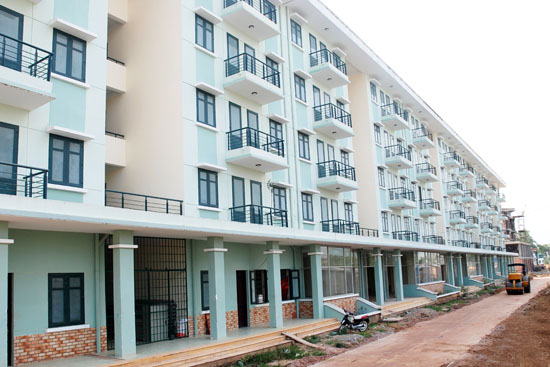The Ordinance on Fees and Charges was passed by the Standing Committee of the National Assembly on August 28, 2001, and took effect from January 1, 2002. After nearly 13 years of implementation in practical life, the Ordinance on Fees and Charges has revealed many inadequacies and limitations. Therefore, at the 10th session, the Law on Fees and Charges was passed by the 13th National Assembly on November 25, 2015, and took effect from January 1, 2017, concurrently abolishing Ordinance No. 38/2011/PL-UBTVQH10 on Fees and Charges.
This is an important law marking a new turning point in the management of fees and charges, providing a new, comprehensive, and synchronized legal corridor.
The law is built with the goal of establishing a full and synchronized legal framework for managing fees and charges, ensuring consistency, and compliance with the provisions of the amended State Budget Law and related legal documents; progressively reflecting promptly and fully the revenue source from fees and charges; addressing limitations in managing the revenue source from fees and charges; promoting private investment in certain types of public services in accordance with the operation of a socialist-oriented market economy; contributing to administrative reform in sectors and fields providing fee and charge-based services. The Law on Fees and Charges includes 6 chapters, 25 articles with some notable changes as follows:
First new point is about the scope of regulation and subjects of application. The law specifies that the subjects of application are state agencies, including Vietnam's representative agencies abroad, public service providers, and organizations and individuals related to the collection, payment, management, and use of fees and charges. Specifically, regarding the scope of regulation, the law clearly states: This law provides for the list of fees and charges; fee and charge payers; fee and charge collecting organizations; principles for determining fee and charge rates; exemptions, reductions, and policies for collecting, paying, managing, and using fees and charges; authorities and responsibilities of state agencies and organizations in managing fees and charges. Regarding the subjects of application, the law stipulates as follows: This law applies to state agencies (including Vietnam's representative agencies abroad), public service providers, and organizations and individuals related to the collection, payment, management, and use of fees and charges. Thus, compared to the current ordinance, the law does not regulate services provided by enterprises.
Second new point in this law regards the list of fees and charges. To encourage private investment, some fees in the fee and charge list issued with the Fee and Charge Ordinance have been transitioned to a price mechanism. Among them, some services, although transitioned to a price mechanism, still need state price management. Therefore, according to the fee and charge list issued with this law, there will be 213 fees, 103 charges, and 17 services transferred from fees to state-priced services.
Third new point in this law concerns provisions for exemptions and reductions of fees and charges. Cases eligible for exemption and reduction of fees and charges include: children; poor households; the elderly; people with disabilities; those who contributed to the revolution; ethnic minorities in particularly difficult communes according to legal regulations, and some other special cases... At the same time, to enhance the decentralization of fee and charge management, the Law on Fees and Charges has added provisions on the authority to grant exemptions and reductions of fees and charges as follows: the Government of Vietnam specifically stipulates the subjects eligible for exemptions and reductions for each type of fee and charge under its authority. The Ministry of Finance and the provincial People's Council specifically stipulate the subjects eligible for exemptions and reductions for each type of fee and charge decentralized in the fee and charge list issued with this law.
Fourth new point covers the management and use of fees and charges, which have been specified in the law ensuring consistency with the amended State Budget Law. Specifically, the law states: Fees collected from services provided by state agencies must be paid into the state budget; in cases where state agencies are allocated operating costs from fee revenue, they may deduct certain amounts. Fees collected from services provided by public service providers can be retained partially or wholly to cover operating costs of providing services and fee collection; the remaining portion should be submitted to the state budget as stipulated: the portion of fees retained for collecting organizations to cover operating costs of providing services and fee collection. Based on the nature and characteristics of each fee, competent authorities will decide the retained amount for collecting organizations.
Retained fee money is managed and used according to legal regulations and must be annually settled for revenue and expenditure. Unspent retained fee money within a year is carried over to the following year for continued expenditure according to stipulated policies. Fees collected from services provided by organizations authorized by competent authorities are retained partially or wholly to cover operating costs of providing services and fee collection; the remaining portion is submitted to the state budget; the management and use of collected fees follow legal regulations.
Beyond the aforementioned contents, the law also specifies the rights and responsibilities of fee and charge collecting organizations, fee and charge payers, and state agencies regarding fee and charge management.
Source: Ministry of Transport
 Article table of contents
Article table of contents





.Medium.png)
.Medium.png)
.Medium.png)
.Medium.png)
